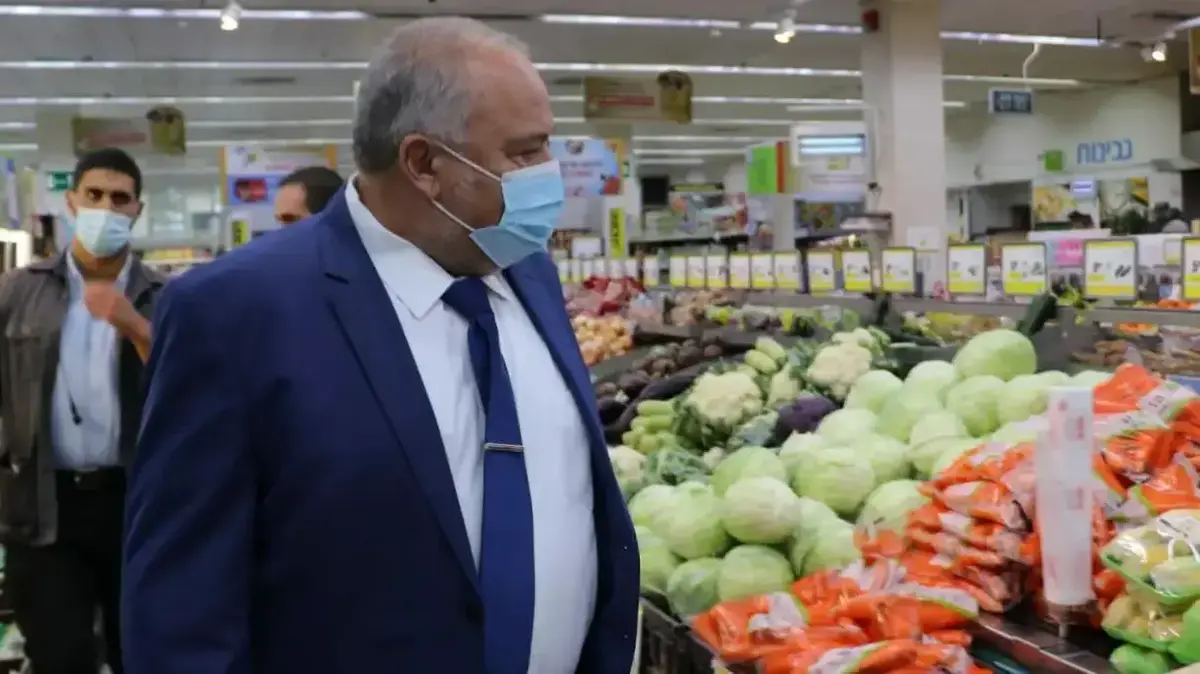Of money
All articles
Agriculture reform repeats: Will prices fall by tens of percent?
The most charged reform of the state budget was taken out of it even before the voting began, but those who think that the finance minister has folded in front of the powerful lobby, which also operated within the coalition, are wrong: those who do not want structured reform will still get it without legislation.
The Treasury is confident: the measures will lead to a dramatic drop in prices
Tags
Avigdor Lieberman
agriculture
Fruits and Vegetables
Eggs
reform
State budget
Sonia Gorodisky
Monday, 08 November 2021, 12:28 Updated: 12:48
Share on Facebook
Share on WhatsApp
Share on general
Share on general
Share on Twitter
Share on Email
0 comments
The Arrangements Act passed along with the state budget in huge celebrations and victory speeches. But even if the celebrations were not excessive, they would surely have been premature: the real test of the government will be in carrying out the many reforms that have entered into the Arrangements Law and no less - in those that have not.
One of the main challenges facing the government is lowering the cost of living, when alongside the housing plan and the (cut) import reform, much of the hope for a dramatic move in this direction has been hung on agricultural reform.
The reform presented in major declarations did not enter into the Arrangements Law, but from a Walla! Money rises that behind the scenes it grows skin and tendons.
Government officials believe that orders directing lowering of fruit and vegetable caps will be heard soon, and if there are no last-minute surprises, as early as January 2022, we could feel a reduction in their prices.
The agricultural reform can be divided into two large parts - vegetation (fruits and vegetables) and laying (eggs).
In order to reduce consumer prices in Israel, which are tens of percent more expensive than in OECD countries, the government wants to lower tariffs on imports of agricultural products to Israel - and this is exactly what the government is aiming for: an order that can be signed regardless of reform Who may be harmed by the king.
Finance Minister Avigdor Lieberman has
previously announced that he is interested in signing the orders after the outline of the reform is agreed upon.
Good to know (promoted)
B-Cure Laser - Does It Really Help Eliminate Pain?
To the full article
Finance Minister Avigdor Lieberman.
Examined the goods, decided not to fight for reform in legislation, when it is possible to abolish protective caps even without it (Photo: without)
The price of eggs: a decrease of tens of percent is expected
The scope of support for farmers in the growing industry is not expected to change dramatically from that presented by the Ministers of Finance and Agriculture in the summer, and stand at about NIS 100 per dunam, which amounts to about NIS 400 million per year, in addition to government capital investments in the industry.
Regarding the egg industry, things are more complicated, when the goal is to reach agreements with the breeders within a month - and only then lower the import caps on the eggs.
Although the initial intention was to amend the Poultry Board Act under the Arrangements Act to cancel the Egg Farm Planner and open the Egg Market to competition, this chapter was split from the Arrangements Act about two months ago and it was decided to try to reach an outline agreed on towers within 90 days.
The price of eggs is 30-40% more expensive in Israel compared to OECD countries, and the total excess cost to the consumer amounts to half a billion shekels. Despite this, only 5% of the total eggs in the economy are imported eggs.
Even when the state is forced to import eggs, it does so in a non-competitive manner - especially during holidays or periods when there is a shortage.
This is in contrast to the practice in other developed countries, which import about a third of the amount of eggs consumed.
Hard-boiled eggs, in more ways than one: "The Poultry Board today is a monopoly that distributes money to people," says a source in the Treasury (Photo: ShutterStock)
The egg farm in Israel is designed by the Poultry Council, which sets the quota for laying hens, and like most farms of this type, it suffers from inefficiency in production. This is reflected in a shortage or surplus of eggs, and ultimately a higher price to the consumer. Opening the egg market to imports may lower the final price to the consumer by tens of percent.
"The Poultry Council today is a monopoly that distributes money to people," explains a government official involved in negotiations with the breeders to Walla! Money. "This monopoly distributes these quotas that are worth a great deal of money. Some choose to produce, some choose to rent their quotas. Production is inefficient because it is done in conditions of shortage and very tight regulation of who grows some. That way no efficient market can develop.
"" Breeders have a lot of power, they earn very nicely on their eggs. "There are also a lot of people who have lamb quotas and they do not grow their own, but rent out their quotas - as if the Poultry Council is distributing apartments," the source added.
Share on Facebook
Share on WhatsApp
Share on general
Share on general
Share on Twitter
Share on Email
0 comments

